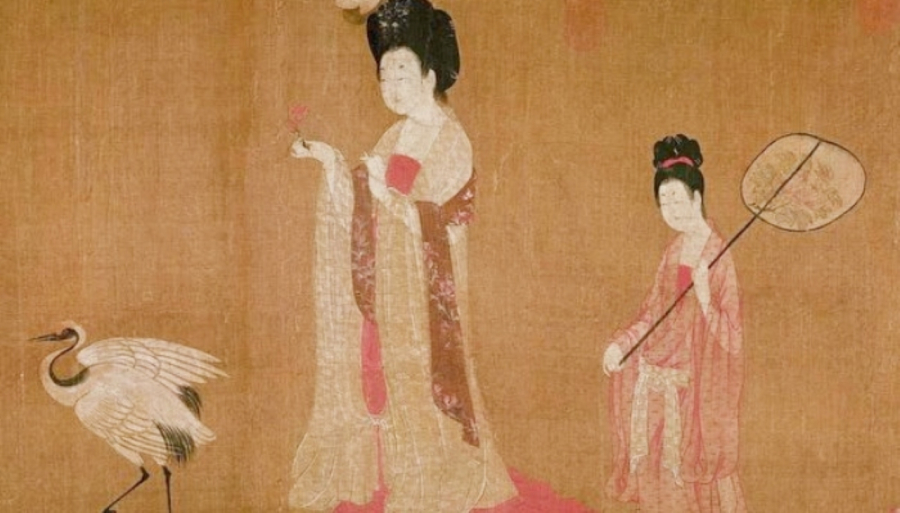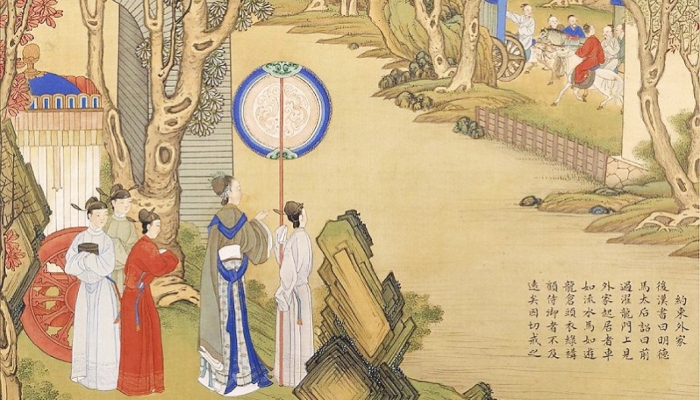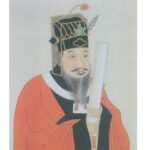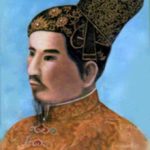Born Into a Prestigious Family
Her given name was Guo Nianyun, also known as Guo Shi, and she was born into a prestigious and influential family.
Her grandfather, Guo Ziyi, was a prominent statesman who played a pivotal role in suppressing the Anshi Rebellion, bringing centuries of prosperity to the Tang Dynasty.
Her father, Guo Ai, was chosen by Emperor Daizong of Tang as a son-in-law, marrying Princess Shengping. Her mother was of imperial birth.
Her maternal grandfather was Emperor Daizong, and her uncle and cousin were Emperor Dezong and Emperor Shunzong, respectively. She herself was married into the imperial family, becoming the wife of Li Chun, the future Emperor Xianzong.
Li Chun personally visited the Guo family to propose marriage, and the wedding ceremony was grand and meticulous, reflecting the esteemed status of Guo Shi.
Guo Shi grew up in luxury and was respected by all. Even after her marriage, she was treated exceptionally well by her in-laws. Such an environment could have easily bred arrogance, but Guo Shi shone with her noble qualities and remained humble.
This was a result of her upbringing in a prestigious family. Her grandfather, Guo Ziyi, was known for his integrity and disregard for fame and fortune, earning the trust of successive Tang emperors.
Guo Shi embodied the grace and virtuous character expected of a young lady of her stature. She bore Li Chun two children: a son, Li You, and a daughter, Princess Qiyang.

Guo Shi embodied the grace and virtuous character of a noble lady. (Illustrative image)
The Uncrowned Empress
After Li Chun ascended the throne as Emperor Xianzong, he bestowed upon Guo Shi the title of Noble Consort, the highest rank among his concubines, but he did not confer the title of Empress upon her.
Three times, the court officials petitioned the emperor, stating that the court must have an empress. Moreover, they argued that Guo Shi was of noble birth, had given birth to the crown prince, was the emperor’s rightful wife, and was renowned for her virtue and grace. They asserted that no one was more deserving of the position of empress, and thus they requested that Guo Shi be crowned.
However, Emperor Xianzong did not approve these petitions.
The emperor had his own concerns: history had shown the potential for powerful in-laws to interfere with politics, and the Guo family’s influence was already significant. Additionally, there had been members of the Guo family in the previous emperor’s harem, and he worried about potential interference from his mother-in-law’s family. He also questioned whether Guo Shi, as empress, would interfere too much with the harem.
Contrary to the court’s discontent, Guo Shi did not concern herself with titles or fame. She focused on her duties: caring for the emperor, overseeing the harem, respecting the ministers, treating the concubines well, and educating her children to be virtuous and pure. She showed no resentment or dissatisfaction and never competed with anyone for the position of empress.
In reality, Guo Shi functioned as the head of the harem, wielding authority akin to that of an empress, even without the official title. The court officials, witnessing this, held her in even higher esteem.
Confronting Challenges and Saving the Tang Dynasty
During the middle and late Tang Dynasty, the empire was in decline, plagued by political turmoil, with eunuchs seizing power and court affairs in disarray.
Emperor Xianzong reigned for 15 years before being assassinated by eunuchs. Subsequently, Guo Shi’s son, Crown Prince Li You, ascended the throne as Emperor Muzong.
Guo Shi was honored as Empress Dowager. Muzong was filial towards his mother, but he had a wild temperament and indulged in wine and women. He passed away after only four years on the throne.
When Muzong’s young son, Crown Prince Li Dam, was poised to succeed him, eunuchs suggested that Guo Shi assume the role of regent. However, she declined, and her brother, Guo Zhao, supported her decision.
With the assistance of Empress Dowager Guo, the young prince ascended the throne as Emperor Jingzong. He honored his grandmother, elevating her to the position of Grand Empress Dowager.
Jingzong’s reign lasted a mere two years before he, too, was assassinated by eunuchs. Chaos ensued, with various factions vying for power, threatening the very foundation of the Tang Dynasty.
Faced with this crisis, Grand Empress Dowager Guo took decisive action. Wielding her supreme authority, she issued an imperial edict proclaiming another grandson, Li Ang (brother of Jingzong), as the new emperor, known as Emperor Wenzong.
The eunuchs’ plot was thwarted, political stability was restored, and the Tang Dynasty survived, even showing signs of revival.
Mentoring Her Grandson, Emperor Wenzong
During Emperor Wenzong’s reign, he sought to curb and eliminate the power of the eunuchs. However, he could not overcome their formidable influence and ultimately fell under their control, dying in melancholy.
Wenzong’s brother, Emperor Wuzong, succeeded him. Wuzong was fond of hunting and pleasure-seeking.
One day, he asked the Grand Empress Dowager for advice on ruling wisely. She replied, “Listen to the remonstrances of your ministers, do not reject their honest advice, and do not favor flattery. Regard the virtuous and capable officials as your confidants. This is the way of enlightened emperors.”
Heeding her words, Wuzong paid closer attention to the memorials submitted by his ministers upon returning to the palace. He curtailed his hunting excursions and devoted more attention to state affairs, leading to a gradual improvement in the governance of the Tang Dynasty.

Grand Empress Dowager Guo was honored for her contributions. (Illustrative image)
A Sorrowful Twilight and a Lasting Legacy
Emperor Wuzong passed away after a five-year reign. According to the order of succession, the throne went to Guangwang Li Yi, also known as Emperor Xuantong, the thirteenth son of Emperor Xianzong.
Xuantong’s mother, Consort Zheng, had once been a servant of Grand Empress Dowager Guo, and there was animosity between them. As a result, Xuantong treated the Grand Empress Dowager poorly.
Guo, who had once enjoyed the highest respect, now found herself in a dire situation, and her heart was filled with sorrow and melancholy. On one occasion, she even attempted to jump from a tower, but she was stopped in time.
When Emperor Xuantong learned of this, he was displeased. That very night, the Grand Empress Dowager passed away. She was posthumously honored as Empress Yi’an.
Empress Yi’an was the only woman in history to have lived through the reigns of eight emperors and served as empress dowager during five dynasties. She had experienced the heights of glory and the depths of sorrow, witnessing the constant changes in the imperial throne. Yet, she remained steadfast in the harem, providing invaluable support to the emperors, who held her in the highest regard.
Although her later years were marked by sadness, it did not diminish the fragrance of her reputation. Historical records attest that her contributions to the Tang Dynasty were on par with those of her illustrious grandfather, Guo Ziyi.
The Cursed Son of Li Shimin: An Innocent Death and a Prophecy Fulfilled
The beloved son of Li Shimin, the infamous first emperor of the Tang dynasty, uttered a sinister curse on his deathbed. Little did anyone know, this curse would come to fruition six years later. This chilling prophecy haunts us to this day, leaving us with a chilling reminder of the power of words and the dark mysteries of the beyond.





































